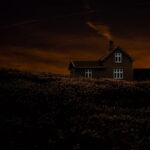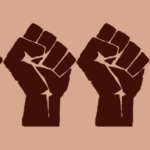“A man with a gun is God…”
–Howard Street by Nathan Heard, 1968
The debate over gun control happens whenever there’s another mass shooting or the murder rate rises with the summertime temperatures in Baltimore, Chicago, Philadelphia, Newark and other cities where lethal shootings are out of control. Whenever these issues arise there is an opposite outcry by N.R.A. members, gun enthusiasts and the politicians who get their financial support screaming about their 2nd amendment right to bear arms as though muskets and pistols were still the weapons of choice.
While it’s obvious “that something needs to be done,” no one can agree what that “something” should be, which translates to nothing ever happening. In addition, though laws could be used to regulate law-abiding citizens, the bad people who rob and steal use guns for all forms of criminal minded acts. In the many run-ins I’ve had with guns in my five-plus decades alive, very few of them were with licensed carriers.
As a kid coming of age in 1970s New York City, I grew-up in a cultural environment that celebrated guns and encouraged young boys to daydream about owning one. From the cap pistols my friends and I played with as we pretended to be cops and robbers to the Daisy BB Guns advertised in comic books to the amount of weaponry used on the television shows and movies we watched on the regular, pop culture made guns sexy, cool and a regular part of life. Though we were aware that real injury or death could be done with firearms, it was also entertainment.
Hell, the Dirty Harry series went as far as making the gun into the co-star. “This is a .44 Magnum, the most powerful handgun in the world, and it would blow your head clean off,” Clint Eastwood says in 1971 hit. In that movie and the four that followed over the next seventeen years, Harry Callahan’ giant gun served as protection, phallic symbol and lover. Girlfriends and other partners would come and go, but that .44 was forever.
Gun toting television shows and feature films (The French Connection, Kojak, Shaft and Death Wish, to name a few) became my entry into a life of reading gritty mysteries, appreciating crime related films and writing neo-noir tales in both fiction and non-fiction categories. Still, though I write a lot about gun violence in my work, I’m jolted each time I hear of brutal massacres or some kid who accidentally killed a relative with a piece they never should have been able to get their hands on.
In 1971, my old building on 151st Street between Broadway and Riverside was a six-story red brick pre-war dwelling that was full of kids who were our friends and playmates. There were siblings Darryl and Jackie, Beedie and Stan on the second floor, and the new Puerto Rican kids that moved in across the hall that spring, Nelson and Vivianna. Two years older than his sister, Nelson was ten-year-old who liked playing sports, building forts and racing down the hill on his bicycle. He was a scrappy, but cool kid, and his little sister, with her long hair and candy sweet disposition, was never far away.
One afternoon while playing over at their place, Nelson beckoned me to his room and instructed me to wait. He went next door to his parent’s bedroom and returned with a snub-nosed revolver. It was my first time seeing a real gun. When Nelson handed it to me, I was surprised by its heaviness. Having seen enough vintage gangster flicks on the WOR Million Dollar Movie, I knew better than to pull the trigger, but holding it in my right hand gave me strange feelings divided between fear and awe.
“It belongs to my father,” Nelson said. I held on to it for a minute or two, and then handed it back. “You better put it away before your mother comes back here,” I replied. Later that evening when I casually mentioned the gun to my mother she freaked out. “I don’t want you playing over there anymore,” she instructed. “They can come over here, but I don’t want you in a house where kids have access to guns.”
I thought she was overreacting, but since then I’ve flashed back to that moment whenever I hear a news report of a kid who had accidentally killed their brother, sister or daddy. I’ve since visualized the horror of my eight year old self wounded or dead on Nelson’s room as his sister shrieked and my blood soaked into the old wood floor. How does a neighbor, one mother to another, explain that their son murdered his playmate “by accident?” It happens.
However, not long after the incident, the family moved and it would be six years before I saw a gun again. I was a thirteen-year-old high school freshman attending Rice High School on 124th Street off Lenox Avenue. It was the fall of 1977 when I noticed an upper classman, whose locker was next to mine, pull a long barreled piece from the locker’s top shelf and transfer it to his book bag. After catching my eye, he said, “I’m hiding this for my brother. He works for Nicky Barnes.”
While I was well aware of the heroin epidemic happening outside our school windows, I’d never heard of the drug kingpin until that day. However, the smart ass in me snapped, “Man, that ain’t no real gun.” Homeboy stared at me with icy eyes and mumbled, “You want me to show you how real it is?” I shook my head “no,” and though it’s been forty-five years I often think what would have happened if I nodded “yes?”
Would I have made the evening news with my mom and grandmother crying hysterically; would the broad smiling St. Catherine’s graduation photo I’d taken months before be on the cover of the Amsterdam News? Would my school friends be packed into church to say goodbye to the kid who once ran the wrong way during a lunchtime football game. The nickname Wrong Way Gonzales stuck for a months.
A few months before the Rice gun incident, Nicky Barnes was profiled in an infamous cover story “Mister Untouchable” for the New York Times magazine that I’d missed when published. Months later, he was in jail. The gun control debate most often is over those who acquire their weapons legally over the folks who are unlicensed, buying guns from shady characters. I’m reminded of Easy Andy (Steven Prince, the gun salesman in Taxi Driver who travelled with suitcases full of hardware. While Andy was a white guy, obviously there were others like him in a variety of races and colors.
Still, the illegal guns that were on the New York City streets in the seventies were a trickle when compared to the flood a decade later when the crack era hit. Crack got folks hooked quickly, but the dangerous lifestyle that went along with selling it was just as addictive.
Crack came to my community in the winter 1985, and by the following year there was constant thunder and boom of gunfire. A few years before it was all about revolvers, .22s, zip-guns and Saturday Night Specials, but the 1980s ushered in the age of automatic weapons: nine-millimeters, Uzis, AK-47s and other killer dillers designed for quick death. While the police were still walking around with .38-caliber six-shooters like Wyatt Earp, the criminals were ready for war.
I wasn’t raised in the ghetto, but my neighborhood quickly became one. After the sun went down, the gunfire began. Some nights I lay in bed scared. Thankfully for me and my grandmother (my mom had moved to Maryland a few years before), most of the shootings took place on Broadway or Riverside Drive, I had the advantage of having windows that faced the backyard.
Several childhood friends had slipped into the glamour profession of drug dealing, a “job” where prison or death was an everyday chance, and those dudes stayed strapped. On any morning when I left the house to go to my square job at a downtown homeless shelter, I peeped the latest chalk outline on the ground and hoped that it didn’t represent one of my homies. Walking from 151st Street to 145th and St. Nicholas Avenue, the sidewalks were sometimes stained with blood.
When it came to marksmanship, most of the new jack dealers couldn’t shoot for shit and innocent bystanders were often wounded or killed. The blood on the concrete could’ve belonged to an old soul, a young child or an actual bad boy. One afternoon I got off the subway at 145th and Broadway, walked up the stairs and stepped right into the middle of a gunfight between two people on opposite sides of the street. Pedestrians scattered like bugs as the shooters seemed to think they were in the middle of Brian De Palma’s infamous Scarface.
Written by macho man Oliver Stone, the extremely violent film quickly became a gangster instructional video for a generation of crack slingers, corner boys and others who were part of “the game.” Many of the Dominican and African-American drug dealers around the way attempted to emulate the trigger happy bad men in that picture. The sway Scarface had over the hard rock knuckleheads caused serious damage and many corpses in our communities.
For those guys, it was about respect—the bigger the gun, the bigger the respect. While gun violence quickly became a way of life in Black and brown hoods, I never understood where they came from; who exactly was placing these weapons on the streets of our cities. There were conspiracy theories that the government was behind it while others placed the blame with unscrupulous gun dealers from down south. I have no idea what forces was behind it, but by 1986 my neighborhood, according to Grandma and Kool Moe Dee, had turned into “the Wild Wild West.”
On a hot August afternoon I was chilling with some friends on Broadway and 148th Street. A crew of us leaned against a parked car drinking beer and talking smack. Up and down the block small groups of men and women were engaged in similar activities. The rowdiest was a group of four Dominican men standing in front one of the known drugs building that was next door to grocery store. Talking loud over the Merengue blaring from a boombox, four dudes I’d seen before, but didn’t know, were downing bottles of Heinekens as though they were water.
The obvious leader of the crew was a tall, handsome man with who carried himself cockily. Dressed in a stylish track suit and white sneakers, I noted how he talked to the others, almost barking at them as though he was a big dog. When me and my pals finished our last six pack, homeboy Keith turned to me and said, “Yo, take a walk.” Walking the half block to the store, when we passed the four guys I’d noticed before their conversation had gotten louder and more intense.
Minutes later, with two six-packs in hand, Keith and I stood on line waiting to pay. Looking out the store’s plate-glass window, Keith said, “Let’s hurry-up and get out of here. Some shit is getting ready to go down.”
“What are you talking about?”
“Man, we don’t have time for questions. Just pay for those brews so we can break out.” I did as I was told and we both rushed out of the bodega and briskly returned to the car where we were hanging. Leaned on the hood of the ride and could see down the block. Suddenly the leader rushed into the building and emerged seconds later with a gun.
Aiming at the friend he’d been arguing with, he shot the man three times. He turned around to walk away, changed his mind and plugged three more bullets into the guy. Before running, I vomited on the sidewalk. Wiping my mouth, I squatted beside the car until the shooting stopped. Keith, who was a smalltime dealer himself, walked over to me. “I can’t believe you just threw-up. Haven’t you ever seen anyone get killed before?” I was shocked by his casualness which was followed by a mocking laugh.
Though I’d never cared about what people thought of me, no man wants to be labeled a coward, but I wasn’t of the streets. A few of my friends had chosen that life, though they never attempted to sway me from the writing path that I’d picked when was in fifth grade. I knew my share of stick-up kids, con artists and drug dealers, but I wasn’t built for that. When it came time to “putting in work” or maraudering, I was left sitting on the stoop. The last I expected to see that afternoon was a murder.
Meanwhile, two of the dead man’s friends picked-up his body while another flagged down a gypsy cab. When the unlicensed taxi stopped, the men hustled the corpse onto the backseat and sat in the front. The cab zoomed away, made a quick u-turn and headed uptown. When the police and ambulance arrived minutes later, their sirens blaring, they were baffled that there was no body. I watched as the authorities circled the block a few times, but found nothing. The scene was so absurd, it could’ve been written by Chester Himes.
That fall, I was coming home from work when I saw Keith and one of his friends on the stoop. “Mike, Mike, what up man? This is my homeboy Reggie.” Me and dude shook hands. “We were just going into your building to smoke a blunt in the back staircase. You want to join us?” Always down to puff, I said, “Sure, but I forgot my keys. I was going to ring the buzzer, but I don’t want my grandmother to know I’m home if I’m not going into the house.”
The intercom was to the left of the door. I saw Reggie push a random button, but I had no idea whose. Somebody buzzed us in and the three of us ran up the back staircase. Unlike my homeboys, I rarely wore sneakers and my hard-bottomed dress shoes click-clanked on the steps upwards to the sixth floor. A few minutes later, Keith rolled a White Owl blunt and sparked it as we talked about the Yankees, the latest rap single and, as we got higher, just laughed about dumb stuff. The once pristine staircase was made of marble and metal, but looked as though they hadn’t been mopped in years.
I thought I heard faint footsteps creeping towards us, but when I looked over the banister I saw nothing. “Just smoked and already paranoid,” Keith laughed. Just then, I heard the footsteps again, but before I looked over a second time, a tiny thug me and Keith knew named Shorty was aiming his burner at us.
“Word Gotti, you motherfuckers got to stop ringing my bell! I thought you assholes were cops.”
We had all grown up together, but last I heard Shorty was serving a stretch on Rikers Island for blasting a drug dealer a few years back. Word on our street said Shorty dragged the corpses into the closet and stole a suitcase of bloody stained cash. How he got out so fast was beyond me. “I saw Mike’s cop shoes and I was goin’ to blast you niggas.”
“Yo, we’re sorry, man,” I stuttered. Keith was silent. “Believe me, it was an accident.” From the way Shorty’s left eye blinked, it was obvious he was doing everything in his power not to kill us. Blinking a few more times, he finally put the gun down. Keith, Reggie and I were no longer high, but we decided it was best to go back outside and take our chances smoking on the stoop.
A few months later I came home and the moment I opened the door to my apartment, I knew something was wrong. My grandma was sitting on the side of her bed smoking a cigarette. Looking at me with eyes that were red from crying, I went over to her. “What’s wrong?” She looked at me as though trying to put together the right words. Finally she blurted, “Go in the living room and look at the ceiling.” Walking quickly into the living room, I looked up and saw a medium sized hole. On the floor there was plaster as well as another hole through the floor.
Grandma had come into the room and sat down on the couch. “What happened?”
“Well, I was sitting out here this morning watching The Price is Right, when all of a sudden something told me to go into the kitchen.” The granddaughter of a Virginia conjure woman, Grandma often had premonitions. “All of a sudden I heard a huge explosion from upstairs. I stayed in the kitchen for a while. It wasn’t until later that I realized that the sound was a gun and a bullet had come through the ceiling.” Joining grandma on the couch, I hugged her tightly.
Years back we knew all of neighbors. If they weren’t a friend, they were always friendly. The family that had once lived above us was a single mother and her daughter Sonia. I had a crush on Sonia since teen, but she and her mom had recently moved. I had no idea who the new neighbors were, had never seen their faces, but since a bullet had come through the ceiling, I assumed they were drug dealers.
My homeboy Keith was in that life. I went across the street and talked to him. That same day, he introduced me to big boss from the apartment. He was a young, slim Dominican dude who couldn’t have been more apologetic. “Poppi, I’m so sorry. It was an accident. Some guy was playing with the gun and it went off. I will send somebody to your place to fix the hole.” Nervously, I chuckled. “Fix the hole? Man, fuck that hole. Just please stop shooting through the ceiling. My Grandmother could’ve been killed.”
The following year I witnessed another murder in my formerly nice neighborhood. It was a humid autumn morning at 7:30 when I was headed to work. Standing on the corner of a 151st and Broadway, I usually crossed the small street and walked a few paces to a Dominican restaurant that sold the best coffee in the world. However, as a trickle of sweat slid down my face, I reasoned that it was too hot for coffee.
As I waited for the light to change, I glanced over at the restaurant’s crimson façade and saw a lanky, sharp suited guy standing in front. Dude looked like he was waiting for a friend. Seconds later a car screeched to a stop at the traffic light. The passenger door was flung open and a man ran from the car with a gun in his hand.
Suddenly he began busting caps into the well-dressed man. It all happened so fast that by the time he hit the ground, the killer was back in the car and the driver zoomed away. If I’d had gotten coffee that morning, I would’ve been right next to the vic when fireworks exploded. A year later I finally moved downtown to Chelsea while Grandma, who had never felt comfortable in her apartment after the bullet came through the ceiling, relocated to the Maryland suburbs with my mom.
In 1999 I moved to Brooklyn. Everything was everything until twelve years later, on a foggy, rainy November night, I was shot three times. I could’ve died, but I didn’t. Back home a month later, I thought about buying an illegal weapon and staying strapped. I thought I needed a gun for protection until I found out the intended victim was my landlady’s boyfriend and it had been a case of mistaken identity.
Still, none of the gun incidents I was involved in, including the back staircase Shorty occurrence or the Brooklyn shooting, would’ve turned any out better had I been strapped as well. Truth be told, it probably would’ve been much worse.
Remembering the many encounters I’ve had with guns over the years, I’ve thought about how fragile life in our gun crazy country can be. Regardless of race, class or age, you could encounter sudden violence from a gun. It could be in a school house or Las Vegas disco, on the subway or in the supermarket. Perhaps getting shot (and sometimes killed) is inevitable in a culture that has always celebrated powerful weapons over innocent people. Believe me, it’s only going to get crazier.

















